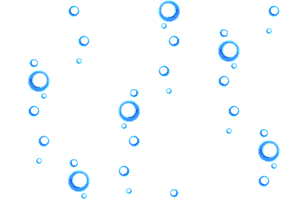
Academy of Underwater Arts & Sciences Presenter of the NOGI Award


Allison Klein
Coral Reef Ecosystems – 2023
Allison Klein is a second-year Ph.D. student at Florida Atlantic University’s Harbor Branch Oceanographic Institute located in Ft. Pierce, Florida. Her dissertation research, advised by Dr. Joshua Voss, aims to investigate the sources and extent of climate tolerance in corals and if transplantation of resilient corals to nearby climate refugia is a viable conservation strategy. Allie’s dissertation research is part of a collaboration with the ToBo Lab and Reef Resilience Lab from the University of Hawaii’s Hawaii Institute of Marine Biology (HIMB) where the group aims to identify thermally resilient coral candidates best suited for large-scale outplanting.
Allie’s passion for coral reefs developed during her junior year at Roger Williams University in 2018 when she studied abroad at the Bermuda Institute of Oceanographic Sciences (BIOS) Station. This experience ignited her love for coral reef ecosystems and their intricate dynamics. She completed her senior undergraduate thesis under the supervision of Dr. Koty Sharp, investigating the dynamics and distributions of microorganisms associated with the coral host, Astrangia poculata. She also conducted a side project on the effects of microplastic ingestion in corals, which contributed to policy changes regarding plastic bag usage in Rhode Island.
Upon graduation in 2020, Allie moved to Ft. Pierce in pursuance of her Master’s degree with Dr. Joshua Voss. Her Master’s thesis focused on the coral species Orbicella faveolata and its variable susceptibility to stony coral tissue loss disease (SCTLD). She used 2bRAD genotyping to determine if intraspecific disease susceptibility had an underlying genetic link resulting in her first lead author publication. Now in pursuance of her Ph.D., Allie’s doctoral research will pivot to another coral reef stressor, thermal tolerance. Her dissertation project aims to characterize how coral thermal tolerance is conserved across space and time using a transplant experiment in two neighboring bays in Oahu, Hawaii: Kāne‘ohe Bay and Kailua Bay. If thermal tolerance is conserved, thermally resilient genotypes can serve as ideal candidates for future transplant and reef conservation efforts.
As a scientific diver, Allie has had the privilege of experiencing the extreme complexity of coral reef ecosystems on a day-to-day basis. However, unfortunately, she has also witnessed firsthand the ongoing decimation of these beautiful habitats from widespread disease outbreaks and bleaching events. As a career scientist, Allie plans to advance her dive training so that she can expand on her current research to include deeper mesophotic coral reef ecosystems. Allie is a 2023 recipient of the Women Divers Hall of Fame Advanced Dive Training Technical Grant where she will use the funds to become a mixed-gas, closed-circuit rebreather (CCR) diver, allowing her to become a key member of her lab’s mesophotic technical diving exploration team.
Following the completion of her Ph.D., Allie intends to pursue a career in academia. She aspires to establish her own laboratory at a university, where she can inspire the next generation to build upon the existing body of knowledge and research. Allie’s dedication to diving and exploring the vast ocean and its complex habitats will remain an integral part of her journey.
